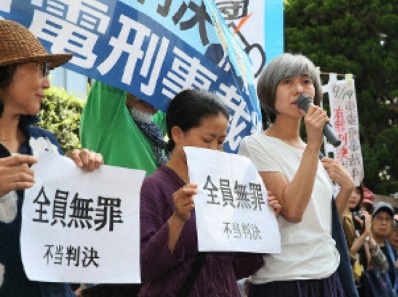In September 2019, the Tokyo District Court acquitted three former TEPCO executives of professional negligence resulting in death and injury in connection with the March 2011 accident at the Fukushima Daiichi nuclear power plant. The three executives—former chairman Tsunehisa Katsumata 79, and former vice-presidents Ichiro Takekuro, 73, and Sakae Muto, 69—were forced to stand trial alleged negligence in not adequately preparing for a large tsunami, resulting in 44 deaths. In this decision, the court found the former executives not criminally responsibility for the unprecedented nuclear disaster.
The crux of the lawsuit was whether or not a tsunami more than 10 meters in elevation could have been foreseen. The three defendants claimed that they could not have foreseen the large tsunami.
During the trial it came to light that in June 2008, a TEPCO engineering group on tsunami countermeasures had advised Muto when he was vice president that measures should be taken to withstand a tsunami of up to 15.7 meters in height, based on a long-term assessment by the national government’s Headquarters for Earthquake Research Promotion. However, Muto instructed personnel to have the Japan Society of Civil Engineers examine the tsunami assessment, leaving concrete measures for some future date. The trial also revealed that TEPCO had to invest significantly in seismic upgrades after the Kashiwazaki-Kariwa nuclear power plant had shut down due to the Niigataken Chuetsu-oki Earthquake in 2007, and those were putting a strain on corporate finances.
The legal defense denied that there had been any negligence, saying there was no concrete basis for the long-term assessment and asserting that an accident could not have been avoided even if countermeasures had been taken.
Responding to the court decision that essentially echoed the defendants’ claims, Shozaburo Ishida, one of the court-appointed lawyers acting a prosecutor, criticized the court ruling, saying it was aligned with the national government’s nuclear policy.
Ruiko Muto, head of the group that filed the criminal complaint against the executives, expressed outrage over the ruling: “This ruling has blurred the responsibilities of those individuals who should be the most responsible, and obstructs the learning of lessons that could have changed society to prevent the recurrence of such an accident ever again…. There was so much evidence and testimony. How could the court acquit them?”

